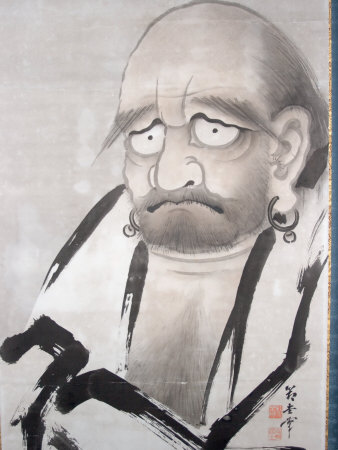All the Zen Masters taught "cutting off the way of conceptual thinking" to realize It (Suchness, Tathata, Buddha-Nature) directly in a single instant.
There is just one sure way to "cut off the way of conceptual thinking" -- one must raise up all of one's energy and then turn it into "a red hot iron ball of Doubt" by concentrating on the question, "Who is the one seeking Enlightenment?" (or one of its many variants).
One can neither swallow this iron ball nor spit it out; it is an impossible and ultimately pitch-black predicament.
With conceptual thinking cut off, sunk in the absolute darkness of the Great Doubt, you will suddenly realize the depth and spaciousness and unbelievable brilliance of your intrinsic Self, which is of the nature of Void. "Isn't this a delightful prospect?" demands Zen Master Mumon Ekai. "Wouldn't you like to experience this?"
You cannot bypass Zen's "cutting off the way of thinking" and get the same result. You cannot just think or say, "Everything is Void from the start, and thinking so makes me the equal of Bodhidharma, because that's what he taught."
Thinking Zen thoughts, about the Void or anything else, is precisely not Zen Enlightenment!
**
"To make use of your minds to think conceptually is to leave the substance [of Mind, Buddha] and attach yourselves to form. The true Mind is no mind of conceptual thought, and it is completely detached from form . . . There are those who, upon hearing this teaching, rid themselves of conceptual thought in a flash . . . But whether they transcend conceptual thought by a longer or shorter way, the result is a state of BEING: there is no practicing and no action of realizing. That there is nothing which can be attained is not idle talk; it is the truth. If you would spend all your time – walking, standing, sitting or lying down – learning to halt the concept-forming activities of your own mind, you could be sure of ultimately attaining the goal." -Grand Zen Master Huang-Po (John Blofeld translation).
In this passage Master Huang-Po apparently contradicts himself. He says "nothing-to-be-attained"; yet he speaks of ultimately attaining the goal of Zen. One can find this same logical contradiction in all classic Zen writings. But is it only sheer illogic?
The Great Way of Zen is to "cut off the way of thinking" -- that's what Mumon Ekai says in the first case of the Mumonkan. By doing that you awaken to your original nature. If you do not awaken to your original nature, you haven't "resolved the great matter" and attained the goal, which is the "state of BEING" with "no practicing and no action of realizing" in it.
To attain this "state of BEING" is not a matter of talking, thinking, and debating Zen. "Just cut off the head of thinking."
In my own experience, I see that people do not have an easy time doing this. They become extremely fearful. Some cannot do it, no matter what.
To an enlightened person, enlightenment is an empty and meaningless term, and there is no real difference between enlightenment and non-enlightenment. According to the Zen Masters, that's exactly why one should "strive" to be enlightened by cutting off thinking. If you do not get enlightened, you may say that enlightenment is an empty and meaningless term, but this will just be more conceptual thinking -- you won't know it absolutely and vividly for yourself! "Profound is the state of suchness -- lofty and beyond illusions."

No comments:
Post a Comment